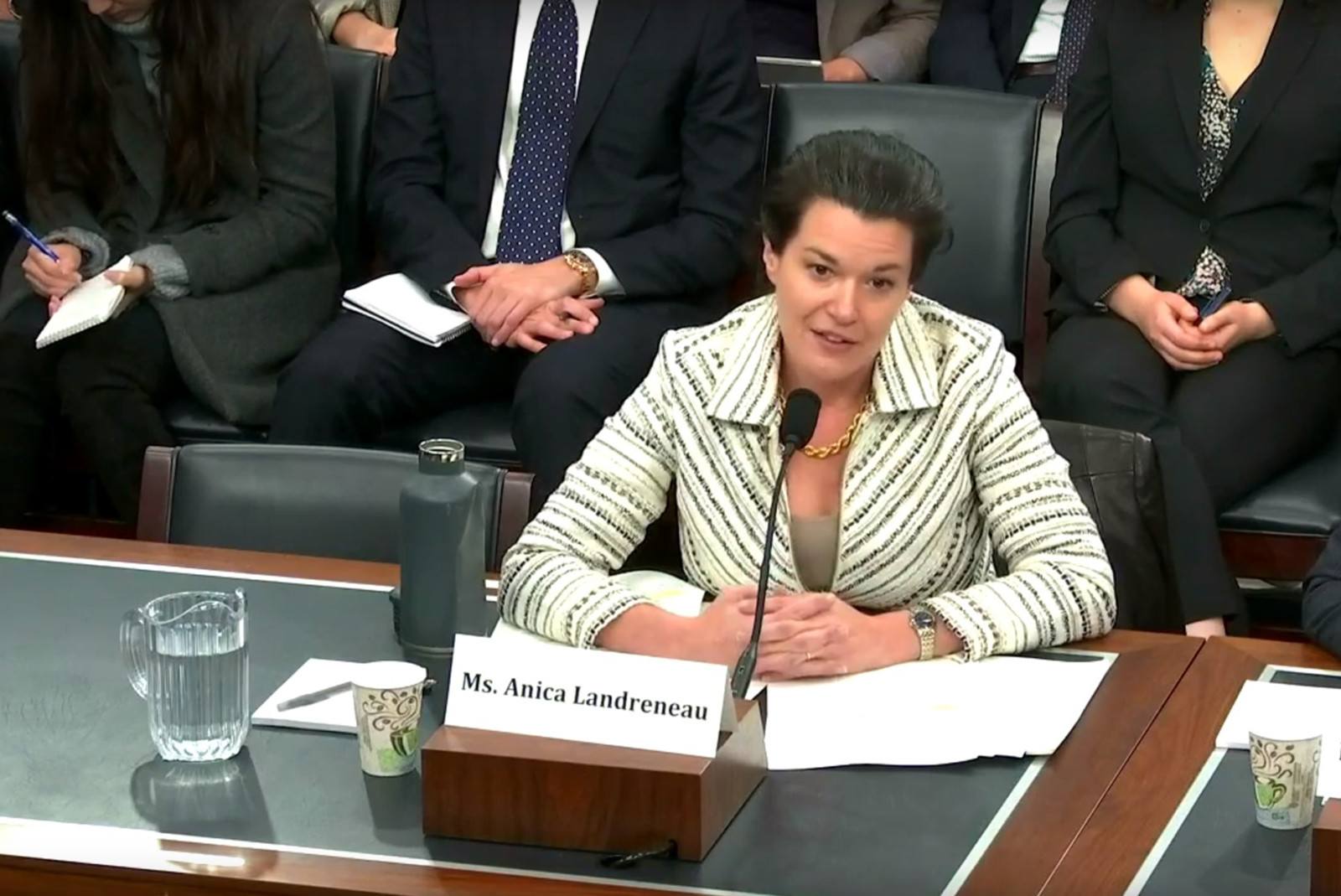HOK’s director of sustainability addressed how building codes, green-energy tools and benchmarking could reduce the energy needs of U.S. buildings and homes, which contribute to more than one-fourth of the nation’s carbon emissions and consume three-fourths of its electricity.
In addition to overseeing HOK’s sustainable design practice, Anica Landreneau serves on Washington, D.C.’s Green Construction and Energy-Commercial Technical Advisory Group and the mayor’s Green Building Advisory Council. Earlier this year, Landreneau coauthored the American Institute of Architect’s latest recommendations for updated building codes that address energy needs and resilience.
In her opening testimony before the House of Representatives committee’s Oct. 17 hearing on Cleaner, Stronger Buildings, Landreneau brought attention to the nation’s haphazard building codes. Nearly half of U.S. states still use codes last updated in 2009 or earlier, and several states have no statewide codes.
“Half the country is constructing building that will consume energy for 60 or more years based on decade-old energy codes,” said Landreneau. “One of the biggest opportunities to save energy and emissions is to simply bring all of our states and cities up to the most current energy code.”
Updated codes have additional benefits beyond impacting climate change. Retrofitting existing buildings to comply with new energy codes would generate jobs and boost local economies. For building and home owners, new energy codes and building performance standards also lead to long-term cost savings.
“The City of Atlanta determined that investment in energy efficiency would return $41 in local benefits for every $1 invested,” said Landreneau. “Analysis indicates $6 are lost for every $1 we don’t spend on code compliance.”
Landreneau described numerous ways Congress could encourage states and local jurisdictions to adopt new building codes, such as the 2021 International Energy Conservation Code estimated to be 10-15 percent more efficient than the 2018 code it will replace.
Congress can:
- Link existing federal tax incentives to zero-energy and zero-carbon goals.
- Maintain and increase federal tax incentives for renewable energy technologies, including storage.
- Continue to support energy simulation tools that aid building owners in making investment decisions for existing building improvements.
- Encourage states and cities to adopt transparency, benchmarking and building performance standards that provide building occupants and homeowners with detailed information on the efficiency of buildings.
Others who provided testimony during the session included Kara Saul Rinaldi from the Building Performance Association, Khalil Shahyd from the Natural Resources Defense Council, Roy Wright from the Insurance Institute for Business & Home Safety and Jimmy Rutland on behalf of the National Association of Home Builders.
